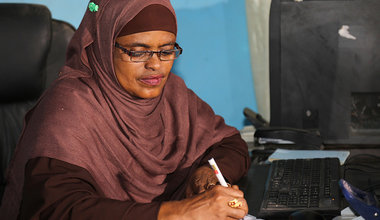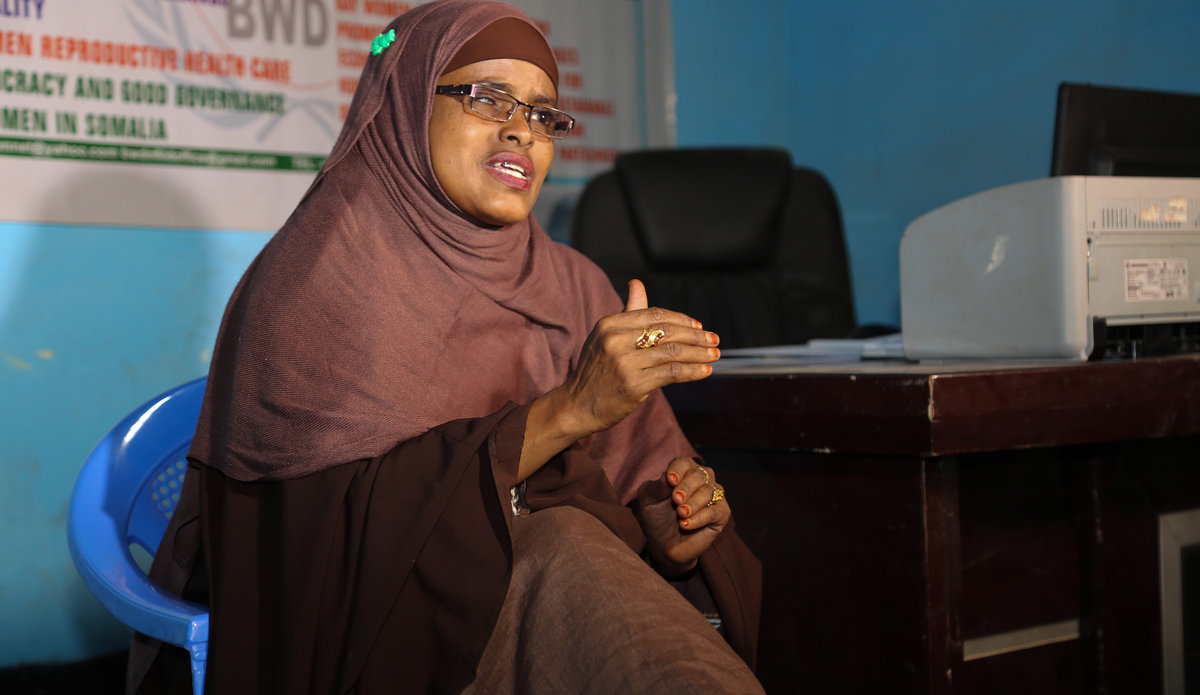Mulki Ibrahim Ahmed: ‘We can occupy roles dominated by men’
The historic gains of women in parliamentary voting during Somalia’s 2016 electoral process could not have been achieved without the dedicated work of grassroots activists like Mulki Ibrahim Ahmed.
As a girl growing up in the Bay region of Southwest state, Mulki was troubled by the low representation of women in her country’s political affairs. After she graduated from high school, she started working as a volunteer at local level to give women a greater voice in Somali politics.
“I realised early enough in life that a majority of women were not involved in politics as they are in social work. This was not because they lacked interest in the way the country was run, but because there were barriers that restricted their involvement,” says the 46-year-old activist.
In 2005, she merged her year-old human rights group with four other local non-governmental organizations to form the Bay Women’s Development Network and started organizing numerous seminars and workshops urging Somali women to run for public office.

Mulki participated in a successful lobbying campaign for the adoption of a 30 per cent quota during preparations for the 2016 electoral process. The number of women elected to Somalia’s tenth federal parliament fell short of that goal, but the 24 per cent of seats won by women candidates in the current parliament represents a major improvement over the 14 per cent of seats held by women in the parliament that was chosen in 2012.
“Something urgent had to be done to enhance the status of women,” recalls Mulki. “Our efforts have started paying dividends, with the number of women vying for elected posts having more than doubled in South West State.”
Mulki says the results of the 2016 electoral process had a galvanizing effect on Somali women, and she vows to continue her efforts to encourage women to seek leadership positions in district councils, state-level regional assemblies and the federal parliament. In her judgment, work still remains to achieve gender equality in Somalia, however she will press on with the fight for more political participation and recognition for women.
“We feel it’s imperative to change the negative narrative about Somali women that is put out to the outside world,” she notes. “We want to prove to the country and the outside world that we are just like other women around the world who have hopes and ambitions and can equally occupy roles dominated by men.”
 UN
UN





